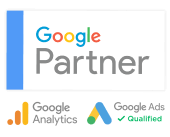Data Don't Lie: How Analytics Can Supercharge Your Marketing ROI
The fast-paced digital landscape explores the profound impact data analytics has on marketing strategies. With businesses continually striving to maximize their return on investment, this blog delves into how analytics can offer actionable insights that drive smarter, more effective marketing decisions. From understanding consumer behavior to tracking campaign performance, leveraging data helps marketers identify opportunities, measure success, and optimize their efforts for better results.
The blog also highlights the importance of data-driven decision-making, discusses tools and methodologies available for marketers, and presents case studies where analytics transformed marketing outcomes. Emphasizing precision and clarity, this resource equips marketers with the knowledge to harness the power of data analytics, ultimately elevating their marketing ROI to new heights.
Understanding the Role of Analytics in Modern Marketing
The Importance of Data in Marketing
In today's marketing landscape, data is a critical tool that helps marketers craft targeted and personalized campaigns. Analytics enables the collection and analysis of vast amounts of consumer information, transforming raw data into meaningful insights. These insights guide decision-making, enabling marketers to tailor their strategies effectively and improve customer engagement.
Leveraging Customer Insights
Understanding customer behavior and preferences is essential for creating resonant marketing messages. Analytics provides a deeper understanding of customer journeys by tracking interactions across different touchpoints. This allows marketers to segment audiences effectively, leading to more personalized content, offers, and experiences that increase customer satisfaction and loyalty.

Predictive Analytics for Future Planning
Predictive analytics tools empower marketers to anticipate future trends and consumer needs. By analyzing historical data, marketers can forecast potential market shifts, allowing for proactive strategy adjustments. This foresight ensures that marketing efforts remain relevant and competitive, ultimately maximizing ROI and driving business growth.
Measuring Campaign Performance
Analytics plays a crucial role in evaluating the success of marketing campaigns. By monitoring key performance indicators (KPIs) such as conversion rates, click-through rates, and customer acquisition costs, marketers gain a clear picture of what works and what needs improvement. This data-driven approach allows for the continuous optimization of marketing strategies.
Tools and Methodologies
A variety of tools and methodologies are available to marketers to harness the power of analytics. From advanced platforms like Google Analytics and social media insights to machine learning algorithms and artificial intelligence, these tools provide comprehensive data analysis capabilities. Understanding how to utilize these resources effectively is critical for maximizing the benefits of data-driven marketing.
How Data-Driven Insights Improve Decision-Making
Enhancing Strategic Planning
Data-driven insights allow marketers to craft well-informed strategic plans. By analyzing consumer data and market trends, marketers can identify and prioritize opportunities that align with business goals. This strategic alignment ensures that marketing efforts are better focused and more likely to yield favorable outcomes.
Facilitating Real-Time Adjustments
One of the greatest benefits of data analytics is the ability to make real-time adjustments to marketing strategies. With continuous data monitoring, marketers can quickly identify when a campaign is underperforming and tweak tactics on the fly. This agility helps maintain campaign effectiveness and protects investments.
Reducing Risks
Leveraging data insights reduces the risk associated with marketing decisions. Instead of relying on intuition or past experiences alone, marketers can use data to forecast potential outcomes. This predictive approach means fewer costly mistakes, as marketers can anticipate and prepare for various scenarios.
Improving Resource Allocation
Data analytics ensures that marketing resources—whether time, budget, or talent—are allocated optimally. By assessing which strategies deliver the highest ROI, marketers can invest more heavily in areas with proven success and pull back from initiatives that aren’t providing the desired return, ensuring resources are used efficiently.
Strengthening Collaboration
Data-driven decision-making fosters improved collaboration across teams. When everyone has access to the same insights, it creates a unified understanding of strategic priorities and objectives. This transparency supports a more cohesive effort from marketing, sales, and product development teams, leading to better overall results.
Tracking Consumer Behavior for Targeted Campaigns
The Importance of Tracking Consumer Behavior
Tracking consumer behavior is paramount in crafting targeted marketing campaigns. By closely monitoring the actions and preferences of consumers, marketers can gain critical insights into what drives purchasing decisions. This information allows for the development of highly personalized marketing messages that speak directly to the needs and desires of different consumer segments.
Methods for Tracking Behavior
There are various methods marketers can use to track consumer behavior effectively. These include website analytics to understand page interactions, social media monitoring to gauge engagement and sentiment and purchase history analysis to identify buying patterns. Additionally, marketers often employ customer feedback surveys and focus groups to gather qualitative insights.
Utilizing Behavior Data for Personalization
The data collected from tracking consumer behavior can be leveraged to enhance personalization efforts. By understanding individual preferences and behaviors, marketers can deliver tailored offers, product recommendations, and content that align with the consumer's interests. This level of personalization not only improves engagement rates but also fosters brand loyalty.
Adapting Strategies Based on Consumer Insights
Behavioral data provides marketers with real-time insights that can inform strategy adjustments. When consumer preferences shift or new trends emerge, companies can quickly adapt their campaigns to maintain relevance and effectiveness. This agility ensures that marketing efforts are continuously aligned with current consumer dynamics, maximizing the impact of targeted campaigns.
Measuring the Success of Targeted Campaigns
To assess the effectiveness of targeting efforts, marketers must implement measurement mechanisms that evaluate key metrics like conversion rates, engagement levels, and customer retention rates. These insights help determine the success of targeted campaigns and highlight areas for further optimization. Continuous measurement is vital for refining strategies and achieving better results over time.

The Importance of Real-Time Data in Marketing Strategy
Responding to Market Dynamics
In today's fast-paced digital landscape, the ability to respond swiftly to market dynamics is crucial. Real-time data provides marketers with up-to-the-minute insights into consumer behavior, market trends, and competitive actions. This immediacy enables businesses to adapt their strategies quickly, ensuring they remain relevant and competitive. By leveraging real-time analytics, marketers can capitalize on emerging opportunities and mitigate potential threats, enhancing their strategic agility.
Enhancing Customer Experiences
Real-time data plays a pivotal role in personalizing customer experiences. By capturing immediate insights into customer interactions and preferences, marketers can tailor their communication and offerings to align with individual needs at the moment. This level of personalization not only enhances customer satisfaction but also fosters stronger brand loyalty, as consumers increasingly expect organizations to deliver timely and relevant interactions.
Improving Campaign Effectiveness
The use of real-time data facilitates more effective campaign management. With real-time monitoring, marketers can assess campaign performance instantly, identifying which elements are successful and which require modification. This allows for on-the-spot adjustments that can improve campaign outcomes. Real-time insights help ensure that marketing efforts are continuously optimized for maximum impact and investment return.
Driving Innovation
Real-time data collects a wealth of information that can drive innovation within marketing strategies. By continuously analyzing fresh data, companies can uncover new trends, consumer needs, and untapped market segments. These insights provide a foundation for developing innovative ideas and strategies that keep the company ahead of the competition and align with the ever-changing consumer landscape.
Aligning with Business Goals
Incorporating real-time data into marketing strategies ensures alignment with broader business objectives. As markets and customer preferences evolve, real-time insights help synchronize marketing efforts with the organization's strategic goals. This alignment facilitates coherent decision-making, ensuring that marketing activities support the overall direction and success of the business.
Identifying High-Value Opportunities Through Analytics
Leveraging Data for Opportunity Recognition
Analytics empower businesses to identify high-value opportunities by processing vast amounts of data to uncover patterns, correlations, and trends. By analyzing customer behaviors, market demands, and competitive landscapes, companies can pinpoint areas with the greatest potential for growth and profitability. This data-driven approach allows businesses to focus their efforts on opportunities that align with their strategic goals and maximize returns.
Segmenting Markets for Targeted Approaches
Through analytics, businesses can effectively segment their markets to cater to specific consumer needs and preferences. By identifying key demographics, behavioral segments, and buying patterns, companies can tailor their marketing strategies to resonate with targeted audiences. This targeted approach not only increases the chances of success but also optimizes resource allocation by directing efforts toward the most promising market segments.
Predictive Analytics for Future Planning
Predictive analytics employs historical data to forecast future trends and consumer behaviors. By understanding probable future scenarios, businesses can proactively develop strategies that address emerging demands and seize upcoming opportunities. This forward-looking perspective enables organizations to stay ahead of trends, ensuring they are well-positioned to capitalize on new developments.
Enhancing Product Development
Analytics can also guide product development by revealing consumer needs, feedback, and areas of dissatisfaction. By leveraging these insights, businesses can innovate and refine their offerings to meet evolving consumer expectations. This continuous improvement fosters stronger market positioning and increases the likelihood of product success, ultimately leading to greater market penetration and customer satisfaction.
Real-Time Adjustments for Maximized Impact
The ability to analyze data in real time facilitates swift adjustments to strategies, ensuring that businesses can adapt to dynamic market conditions. When swift changes are required to capitalize on high-value opportunities, real-time analytics provide the insights needed for immediate action. This agility ensures that organizations remain competitive and relevant in a rapidly changing business environment.
Measuring Campaign Performance for Maximum Impact
Setting Clear Objectives
To measure campaign performance effectively, it's crucial to set clear and specific objectives from the outset. These objectives should align with broader business goals and provide a framework for assessing the success of marketing initiatives. By defining measurable targets, such as increasing brand awareness, generating leads, or boosting sales, businesses can establish benchmarks against which they can assess performance.
Selecting the Right Metrics
Choosing the right metrics is essential for gaining a comprehensive understanding of campaign effectiveness. Key performance indicators (KPIs) should reflect the specific goals of the campaign and offer actionable insights. Common metrics include conversion rates, cost per acquisition, click-through rates, and engagement levels. By focusing on relevant KPIs, marketers can track progress and identify areas for improvement.
Utilizing Analytical Tools
Leveraging analytical tools allows businesses to gather, process, and interpret data efficiently. These tools can provide real-time insights into campaign performance, enabling marketers to monitor key metrics, track consumer interactions, and identify trends. Advanced analytics platforms can also offer predictive analysis, helping businesses anticipate future outcomes and refine strategies proactively.
Conducting A/B Testing
A/B testing is a valuable method for optimizing campaigns by comparing different versions of a marketing element. By testing variables such as headlines, visuals, and calls to action, marketers can determine which version resonates best with their audience. This data-driven approach helps refine campaign components, enhance effectiveness, and ultimately achieve better results.
Analyzing Feedback and Consumer Behavior
Collecting and analyzing feedback and consumer behavior provides insights into the audience's perception of the campaign. By examining customer reviews, social media interactions, and website behavior, businesses can understand what aspects of the campaign are successful or need refinement. This information is crucial for making informed adjustments to improve future marketing efforts.

Reporting and Refining Strategies
Regular reporting ensures that campaign performance is consistently tracked and evaluated. By compiling and reviewing performance data, marketers can identify trends, successes, and shortcomings. This continuous assessment allows for the refinement of strategies, ensuring marketing efforts remain optimized for maximum impact. Implementing lessons learned from past campaigns can significantly enhance future performance.
Personalizing Customer Experiences with Analytical Insights
Understanding Customer Preferences
In today's competitive market, understanding customer preferences is key to personalizing experiences. Analytical insights allow businesses to gather data on customer behaviors, preferences, and interactions. By analyzing this data, companies can create detailed customer profiles that highlight individual likes, dislikes, and purchasing patterns. This understanding enables businesses to tailor their offerings and communications to meet the specific needs of each customer, fostering stronger customer relationships and enhancing brand loyalty.
Tailoring Marketing Communications
Utilizing analytical insights to personalize marketing communications is a powerful strategy for engagement. By segmenting audiences based on demographics, purchase history, and behavior patterns, businesses can craft messages that resonate with each segment's unique interests and needs. Personalized emails, offers, and advertising content that reflect the customer's previous interactions and preferences not only improve customer experience but also increase the likelihood of conversions.
Enhancing Product Recommendations
Analytics can significantly enhance product recommendations by analyzing customer browsing and purchase history. Recommender systems leverage data to suggest products that align with an individual's tastes and past buying behavior. This personalization not only improves customer satisfaction by making the shopping experience more relevant but also increases sales through targeted upselling and cross-selling strategies.
Improving Customer Support
Analytical insights can transform customer support, making it more personalized and efficient. By accessing detailed customer histories, support teams can tailor their responses and troubleshoot issues more effectively. Predictive analytics can also anticipate potential issues, allowing businesses to proactively address concerns before they escalate. This level of tailored support enhances customer satisfaction and builds long-term loyalty.
Implementing Real-Time Personalization
Real-time analytics offer the opportunity to personalize customer experiences instantly. By tracking interactions as they occur, businesses can adjust their strategies on-the-fly, delivering personalized recommendations, offers, and content in real-time. This dynamic and responsive approach ensures that customers receive the most relevant experiences, increasing engagement and enhancing customer retention.
Measuring Impact and Continuous Improvement
To ensure that personalized strategies are successful, measuring their impact is crucial. Analytical tools can track customer responses to personalized efforts, providing insights into what works and what doesn't. This ongoing evaluation allows businesses to refine their personalization strategies continuously, ensuring that they remain effective and keep pace with changing customer preferences and market trends.
Get in Touch with LevelUp Digital Solutions
Ready to transform your marketing strategy and elevate your brand with data-driven insights and personalized experiences? Reach out to LevelUp Digital Solutions today! Our team of experts is eager to partner with you to craft innovative marketing solutions that resonate with your target audience and drive measurable results. Contact us now for a consultation and discover how we can help your business achieve new levels of success.



















